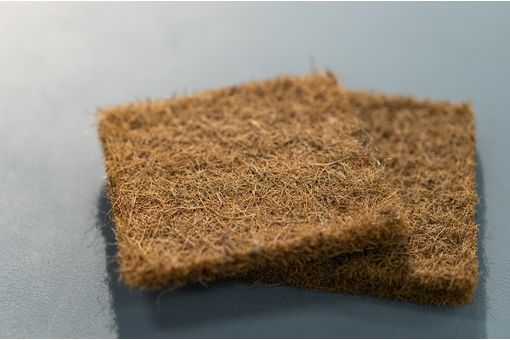Interviews
Retailers will move orders offshore due to strike – Palmi, expert
23 Sep '09
5 min read
Last Tuesday, the South African Clothing and Textile Worker's Union (SACTWU) announced the beginning of an indefinite strike in the textile and apparel sector, to protest against not being given adequate wages, in line with hike in inflation rates.
Meanwhile, the South African textile and clothing sector too is going through one of its worst periods ever seen. Textile units are closing down with amazing regularity as they are not able to meet competition from import of Chinese textiles and clothing.
Fibre2fashion spoke to Mr Renato Palmi, researcher, author and apparel development specialist and also Director of Redress Consultancy, which provides, research, development, advocacy and Publications Company for the South African fashion, apparel and textiles industry sectors. It also conducts socio-economic research and local economic development work.
We began by asking him if the timing of the strike was correct under the current circumstances, to which he said, “In my opinion, this is not the right time, but I also fully understand the concerns of the South African Clothing and Textile Worker's Union (SACTWU) about the low payment and especially the discrepancy in wages between the metro (city) and non-metro (out-lying area) however to embark on a strike now I think is going to do more harm in the long-term”.
He said, “The long term consequence will be detrimental for the industry and I understand that the union is concerned about the low wages and that they are following the mandate of their members but any victory by the union will be short lived and overshadowed by the long term negative impact on the industry and consequently on the union's members. I think the options for the manufacturers are: (a) wait out the strike (b) retrench and restructure (c) move into the informal sector which is unregulated”.
He added by saying, “The ongoing strike is already have an effect on small business who are having to go back to their clients to inform them that they cannot meet delivery dates and the larger retailers that dominate the industry in South Africa will simply move their orders off-shore if local suppliers cannot deliver on time."
To another question on the actual reasons for the downfall of this very promising sector in South Africa, he explained by saying, “The reasons are numerous. Most of the industry blames cheap imports, however, records and research shows that cheap imports have always played a role in the South African apparel industry sector and it was assumed that implementation of the quotas on Chinese imports which has now ended would help the industry to restructure.
“The quota period was too short and it was implemented without any feedback from the stakeholders from certain sub-sectors of the industry and there was little policy as to how the industry could take advantage of this period, but again, the entire blame, however, cannot all be laid at the government's door as there was little initiative from within the industry to invest or restructure their production facilities.
Meanwhile, the South African textile and clothing sector too is going through one of its worst periods ever seen. Textile units are closing down with amazing regularity as they are not able to meet competition from import of Chinese textiles and clothing.
Fibre2fashion spoke to Mr Renato Palmi, researcher, author and apparel development specialist and also Director of Redress Consultancy, which provides, research, development, advocacy and Publications Company for the South African fashion, apparel and textiles industry sectors. It also conducts socio-economic research and local economic development work.
We began by asking him if the timing of the strike was correct under the current circumstances, to which he said, “In my opinion, this is not the right time, but I also fully understand the concerns of the South African Clothing and Textile Worker's Union (SACTWU) about the low payment and especially the discrepancy in wages between the metro (city) and non-metro (out-lying area) however to embark on a strike now I think is going to do more harm in the long-term”.
He said, “The long term consequence will be detrimental for the industry and I understand that the union is concerned about the low wages and that they are following the mandate of their members but any victory by the union will be short lived and overshadowed by the long term negative impact on the industry and consequently on the union's members. I think the options for the manufacturers are: (a) wait out the strike (b) retrench and restructure (c) move into the informal sector which is unregulated”.
He added by saying, “The ongoing strike is already have an effect on small business who are having to go back to their clients to inform them that they cannot meet delivery dates and the larger retailers that dominate the industry in South Africa will simply move their orders off-shore if local suppliers cannot deliver on time."
To another question on the actual reasons for the downfall of this very promising sector in South Africa, he explained by saying, “The reasons are numerous. Most of the industry blames cheap imports, however, records and research shows that cheap imports have always played a role in the South African apparel industry sector and it was assumed that implementation of the quotas on Chinese imports which has now ended would help the industry to restructure.
“The quota period was too short and it was implemented without any feedback from the stakeholders from certain sub-sectors of the industry and there was little policy as to how the industry could take advantage of this period, but again, the entire blame, however, cannot all be laid at the government's door as there was little initiative from within the industry to invest or restructure their production facilities.
- 1
- 2
Popular News
Leave your Comments
Editor’s Pick
Therese Premler-Andersson
Textile Machinery Association of Sweden (TMAS)
Ritesh Dodhia
Dodhia Synthetics Limited
































-Ltd..jpg?tr=w-120,h-60,c-at_max,cm-pad_resize,bg-ffffff)





.jpg?tr=w-120,h-60,c-at_max,cm-pad_resize,bg-ffffff)
.jpg?tr=w-120,h-60,c-at_max,cm-pad_resize,bg-ffffff)






